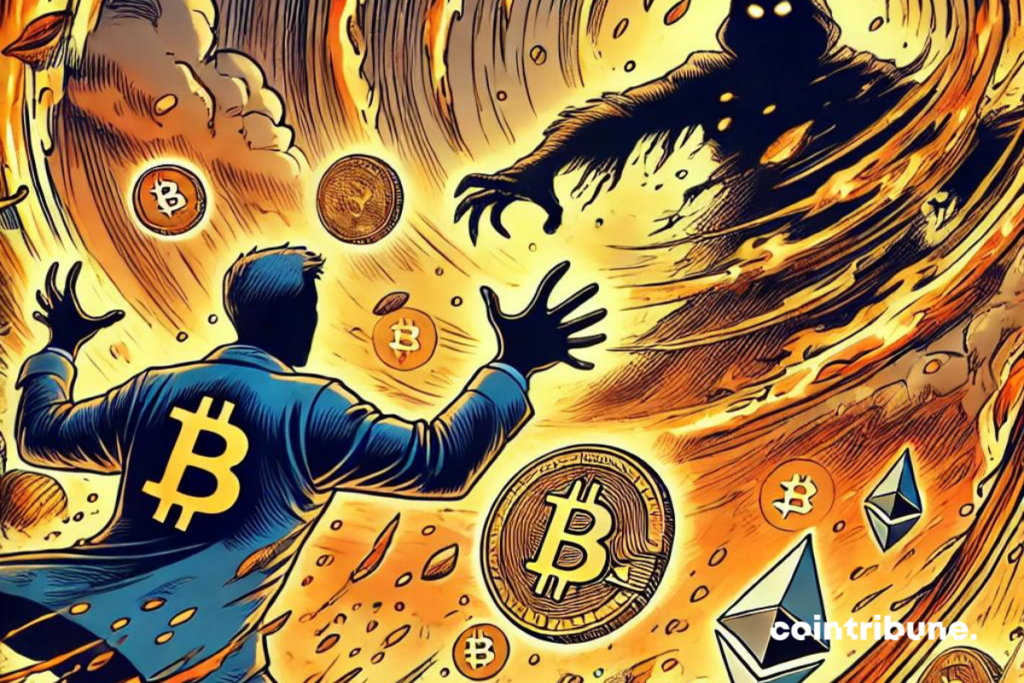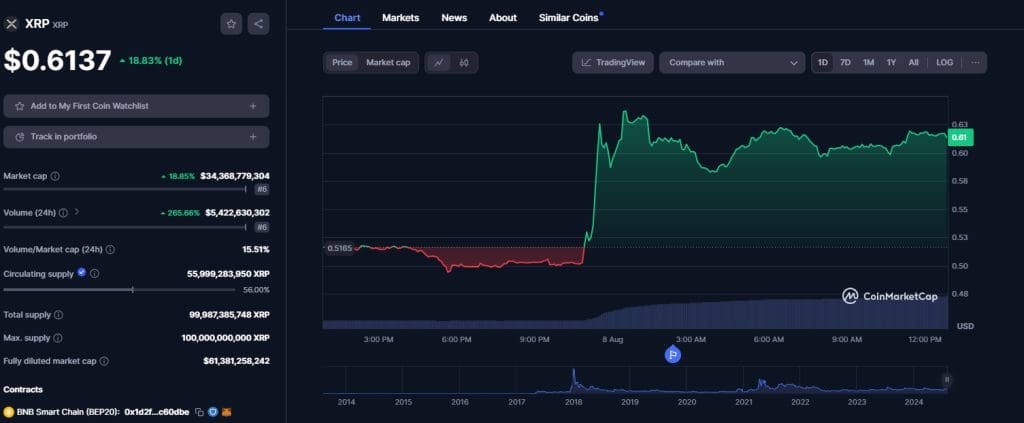Crypto: The Iranian Response Could Still Shake Up the Market!
Geopolitical tensions have always had a significant impact on financial markets, and the crypto sector is no exception. As Iran prepares a potential retaliation against Israel, speculations about the consequences of these actions on the crypto ecosystem are multiplying. Such an escalation could not only destabilize traditional markets but also provoke unexpected movements in the digital assets sector.
Immediate Reactions and Increased Volatility
When significant geopolitical news breaks, markets often react with a movement of panic. Investors look to shelter in assets considered safe. This can cause a drop in cryptocurrency prices.
However, cryptocurrencies, often seen as an alternative store of value, could also see an increase in demand. This dual dynamic can lead to increased volatility, with sudden and unpredictable price fluctuations.
During times of crisis, trading volumes on cryptocurrency exchanges tend to increase. Investors attempt to quickly reposition themselves, whether to secure their investments or to capitalize on market opportunities.
An Iranian retaliation accompanied by threats of cyberattacks or other forms of destabilization could amplify these movements. This volatility could be exacerbated by massive sales of leveraged positions, as observed during previous crises.
Liquidity is crucial in times of turbulence. Investors seek to convert their assets into cash quickly, which can cause price drops even for assets deemed solid.
Cryptocurrencies, with their decentralized nature, offer some flexibility but can also be subject to liquidity shortages. Centralized and decentralized exchanges will therefore have to manage sudden influxes of transactions, with potential risks of congestion or failures.
Investment Strategies and Investor Reactions
Bitcoin, often dubbed “digital gold”, could see its demand increase as a safe-haven asset.
During times of crisis, investors seek assets not correlated to traditional markets.
Bitcoin, with its decentralized nature and resistance to censorship, could be seen as a safe alternative. However, this perception depends on investors’ confidence in the resilience of crypto infrastructure against potential threats.
Short-term traders might see the increased volatility as a profit opportunity. Price fluctuations offer quick gain possibilities but also increase the risk.
Trading strategies such as scalping or day trading might become more popular. However, these strategies require rigorous risk management, as market movements can be abrupt and unpredictable.
In a context of geopolitical tensions, caution is necessary. Institutional investors might reduce their exposure to cryptocurrencies while awaiting stabilization.
Similarly, retail investors will feel the urge to diversify their portfolios to minimize risks. Long-term investment strategies might include allocations to less volatile assets, such as stablecoins, or investments in resilient decentralized infrastructures.
Long-term Perspectives for the Crypto Ecosystem
An Iranian retaliation could include cyberattacks targeting critical infrastructures, including those of cryptocurrencies. Exchanges and digital wallets could be vulnerable, increasing the risks for investors.
However, such a situation could also accelerate the development and adoption of more robust security solutions, thereby strengthening the ecosystem in the long term.
Global regulators might react to geopolitical developments by tightening controls on cryptocurrency transactions, particularly to prevent their use in illegal activities or to circumvent sanctions.
This regulatory pressure could limit certain activities but also encourage wider and more secure adoption of cryptocurrencies, incorporating enhanced compliance practices.
Despite short-term challenges, interest in cryptocurrencies could grow, especially in regions where traditional financial systems are under pressure. Iran, for example, could intensify its adoption of cryptocurrencies to circumvent international sanctions, a movement that could be observed in other countries facing economic restrictions. This trend could reinforce the role of cryptocurrencies as viable alternatives to traditional financial systems.






